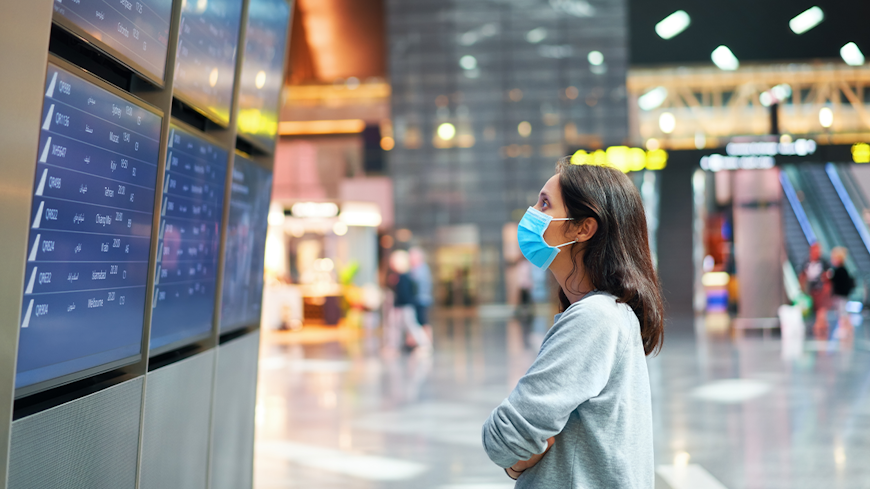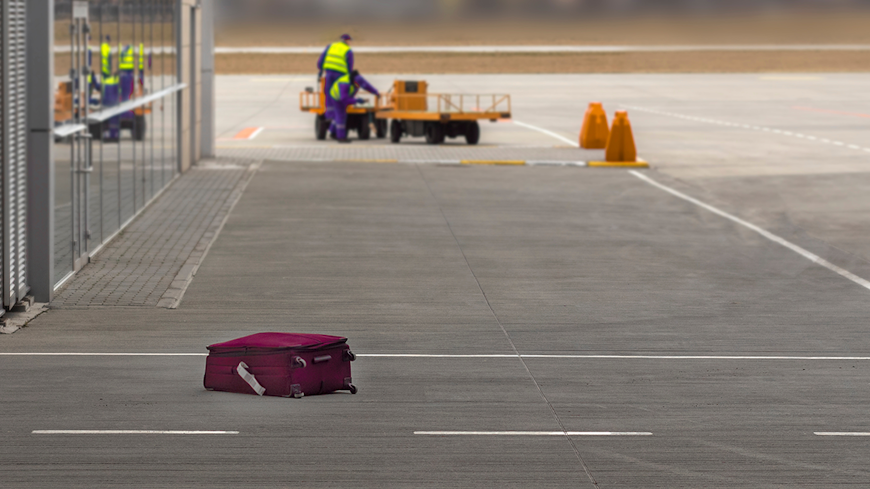When you flight is delayed or cancelled, it’s important you know what you’re entitled to. Here’s how to use the Civil Aviation Act (CAA) to claim compensation and have your unplanned accommodation and meals paid for.
Need some personalised advice? Consumer NZ members can contact our Advice Line - our advisers will help you know your legal rights.

Your domestic flight rights
My flight is cancelled. What are my rights?
If your flight is cancelled due to an event within the airline’s control, such as staffing or mechanical issues, you can ask for a refund. You’re also entitled to claim back any additional expenses you incur because of the cancellation or delay.
You can claim the lesser of:
up to 10 times the cost of the ticket
the actual costs of the delay.
Along with flight costs, you may be able to claim back other expenses like meals, taxis and accommodation, or any other costs you may incur getting to your destination. Keep your receipts so you can claim the money back from the airline.
Your loss has to be reasonable. You won't be able to charge an airline for a premium room in a fancy hotel unless that was the only accommodation available.
If your flight is cancelled or delayed because of weather or something else outside the airline’s control, like a pandemic, your rights are limited. For cancellations, the airline will usually offer you a credit or rebook you on the next available flight. Any additional costs you incur, such as accommodation and taxis, are on you.
An airline can't mislead you about the reason for its delay or cancellation. If it does, it could risk breaching the Fair Trading Act. If you're unsure about the reason, ask the airline to clarify, and if in doubt, it's always worth asking for evidence. It's worth knowing that even if the weather looks fine, the flight schedule could have been affected by previous weather.
If you booked refundable fares, you can ask for a refund.
If you’ve purchased domestic travel insurance, check to see what the policy offers in these situations.
My flight has been delayed. What can I do?
The same rules apply for cancellation and delay. So if your flight has been delayed due to reasons within the airline’s control, the CAA says you’re entitled to claim reimbursement from the airline of up to 10 times the cost of the ticket, or the cost of delay, whichever is lower. If you need to fork out for food, accommodation or transport due to the delay, keep your receipts and claim this back from the airline.
The airline doesn’t have to refund you or reimburse your costs if the delay couldn’t have been avoided. For example, if there’s a volcano or wild weather that prevents the flight from taking off. If you haven’t purchased a refundable fare, you’ll be entitled to be rebooked on another flight, or to a credit.
The airline has overbooked the flight and I’ve been bumped. What are my rights?
As this is something within the airline’s control, you’re entitled to claim reimbursement from the airline under the CAA of up to 10 times the cost of your ticket, or the cost of the delay, whichever is lower. Keep your receipts for any expenses and lodge a claim with the airline for reimbursement.
The airline has rebooked me on another flight but the time doesn’t suit. What can I do?
If the reason you’ve been rebooked is because the airline’s mucked up, you don’t have to accept the new flight time. You can ask for a refund instead. You can also claim reimbursement for any expenses you incur (up to the limit) under the CAA.
For events outside of the airline’s control, ask for a credit or to be rebooked on a later flight.
Can I get a refund if I’ve just changed my mind and no longer want to travel?
In this case, you’ll normally only be entitled to a refund if you paid for a refundable fare. Otherwise, you could consider changing your flight to another date – though you may have to pay extra – or asking for a credit.
Your international flight rights
What are my rights if an international flight is cancelled or delayed?
Your rights on international flights differ depending on where you are, where you’re heading and where the airline is based.
If the airline is at fault and you’re flying between two signatory states to the Montreal Convention (comprising 140 states), for example New Zealand and Australia, you should be reimbursed your airfare and other costs you incur when your flight is cancelled. You can claim compensation for any additional costs you incur, up to a limit of around $15,670.
There is a catch though – if the airline can show it took all reasonable measures to avoid the cancellation or delay, it won’t be liable.
The same rules apply for delays – but you won’t be reimbursed your airfare if you’re put on another flight.
What are my rights if an EU flight is cancelled or delayed?
If you're departing from an EU airport, or flying into an EU airport on an airline based in the EU, and your flight is cancelled, you’re entitled to choose between re-routing to your final destination, a flight home or a refund.
You will also be entitled to financial help to pay for ‘reasonable, appropriate and necessary’ expenses such as food, drink, accommodation and even phone calls while you wait. What is determined reasonable will depend on how long you have to wait.
However, you won’t get compensation if the cancellation was due to extraordinary circumstances or you were advised about the cancellation more than 14 days in advance.
What are my rights if a US flight is cancelled or delayed?
For travel within the United States, an airline will rebook you on the next available flight if the one you booked is cancelled. The airline does not need to compensate you for any other costs (such as food or extra accommodation).
However, each airline will have its own policies, so it’s worth asking if they do offer some compensation.
If you’re bumped from your flight due to overbooking, the United States Department of Transportation requires airlines to compensate you in some circumstances. The compensation is based on the length of the delay and whether you were voluntarily or involuntarily bumped.
If it’s the latter, you can be paid up to 400% of your one-way fare, capped at US$2,150 (about NZ$3,600).
Your rights if an airline loses your bags
Domestic flights
My baggage has been lost in transit. What are my rights?
Yes, but there’s a limit. When you’re flying domestically, your rights for lost baggage are set out in the Contract and Commercial Law Act (CCLA). Under the CCLA, the airline is liable for loss or damage to your bags up to $2000 per bag. So, if you’re travelling with pricey gear, it’s better to keep it with you rather than stow it in your baggage.
Under the CCLA, you have 30 days to make a claim. However, the airline is allowed to specify a shorter period in its contract.

International flights
My baggage has been lost in transit. What are my rights?
On an international flight, your baggage is covered by the Montreal Convention. The convention sets out the maximum amount an airline has to pay if your baggage is lost, damaged or delayed. It’s currently about $3400.
If your baggage is delayed, the airline only has to cover the cost of essential items. Typically, airlines don’t accept liability for consequential losses.
Your rights if an airline damages your bag
Domestic flights
Under the Contract and Commercial Law Act 2017:
the airline is liable for damage of up to $2,000 per bag
you have 30 days to make a claim with Air New Zealand, but only 3 days with Jetstar.
See what happened when our colleague Abby’s suitcase was damaged on an Air New Zealand flight.
International flights
Damaged luggage is covered by the Montreal Convention, which most countries have signed. You can claim up to NZ$3,600 per passenger, unless the damage is caused by the contents of the bag or a fault in its construction.
Check your airline’s time limits for reporting damaged luggage. Air New Zealand’s is 7 days.
Tip: Your travel insurance may afford greater cover than the law. For instance, some comprehensive policies cover lost and unrecoverable baggage up to $30,000. See our Travel insurance guide for more information.

We know your rights
Got a problem with a faulty product, received shoddy service or been misled by a retailer? Our expert advisers can provide clear, practical advice that you can trust.

